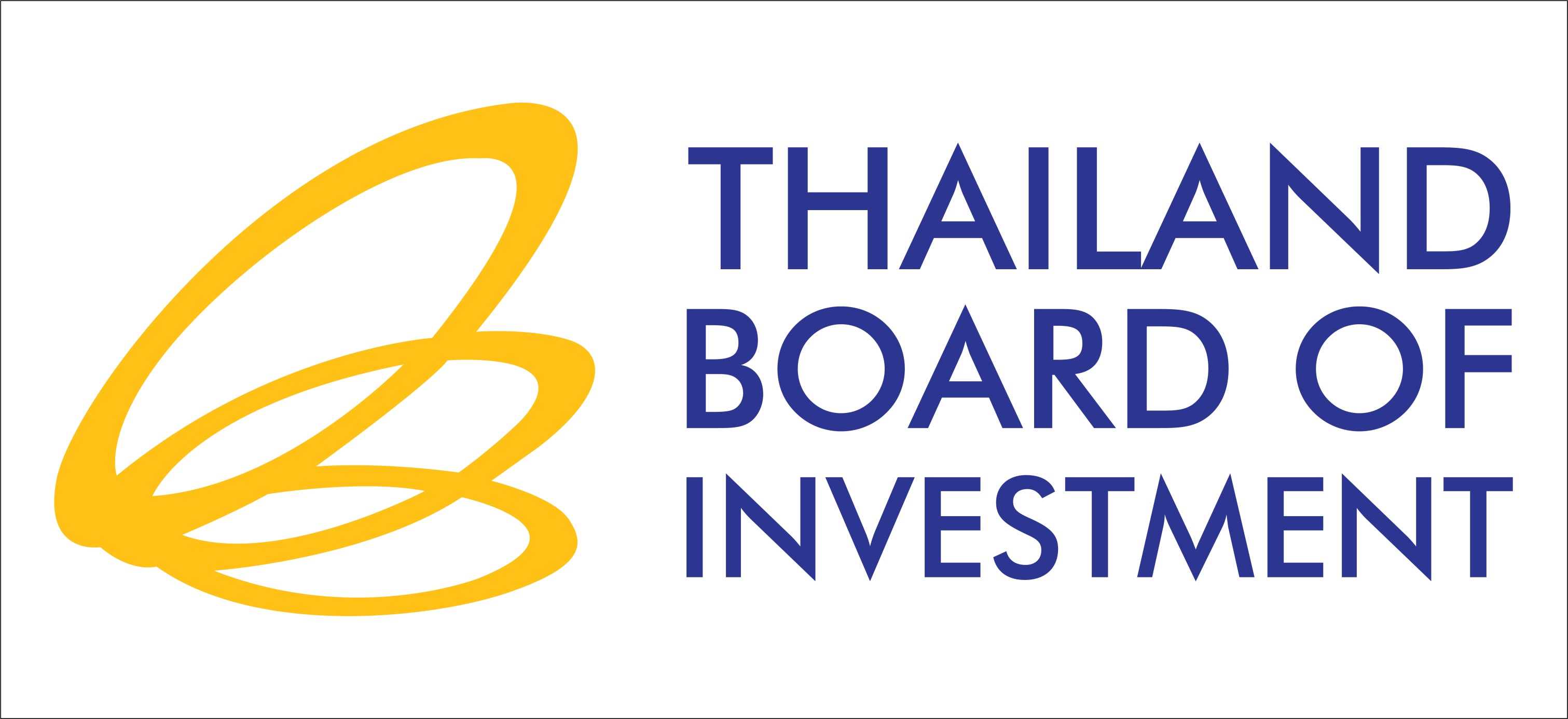Investment/Syngenta invests over 330 million baht
Investment/Syngenta invests over 330 million baht
Editorial team
Syngenta Seeds Thailand invests over 330 million to boost production capacity with new plant in Lopburi
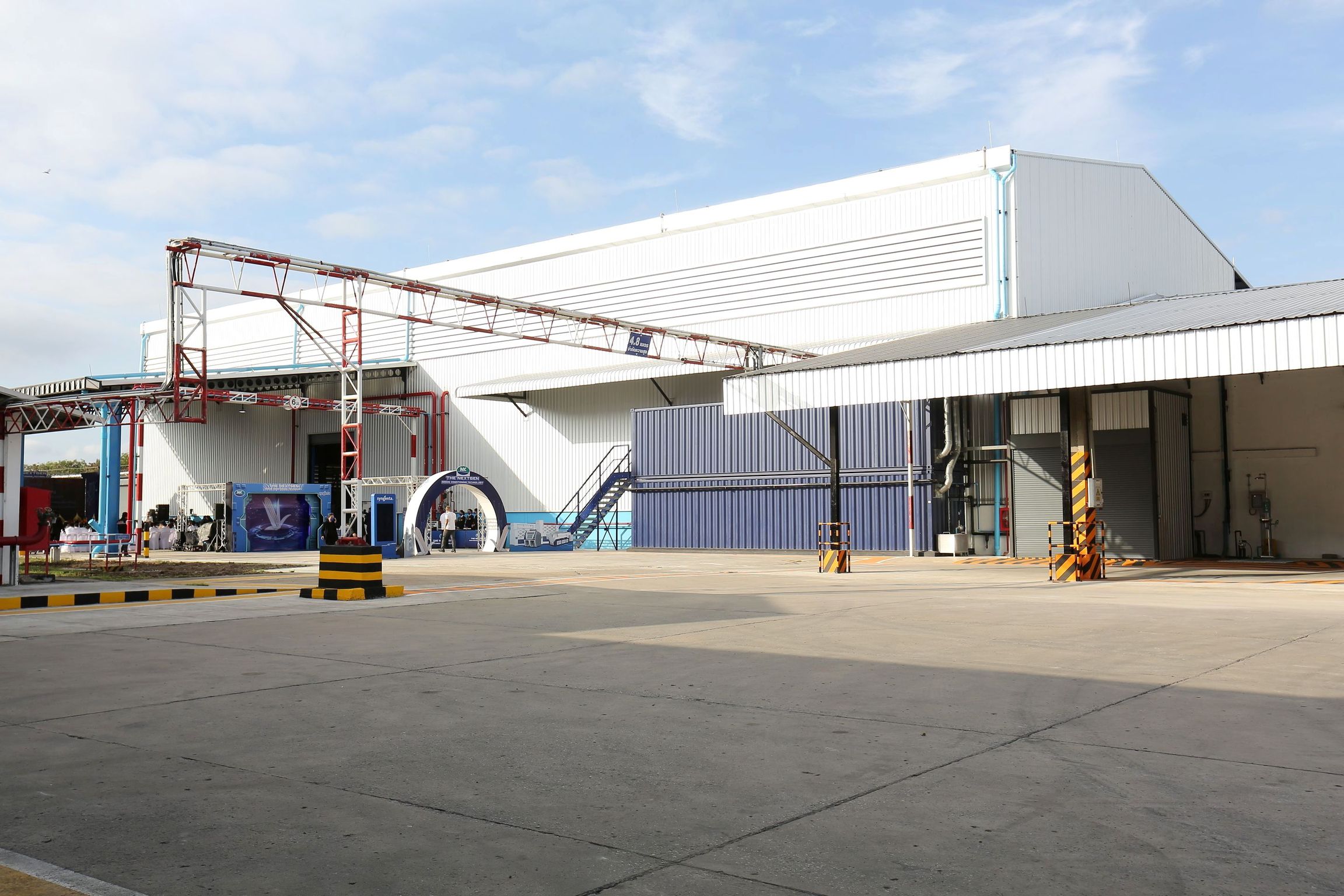
The new factory will increase production capacity up to 10 tons per hour, a significant increase from the previous three tons per hour. It will also introduce the latest technology for corn seed production from Germany and Japan to achieve high-quality corn seeds for livestock feed.
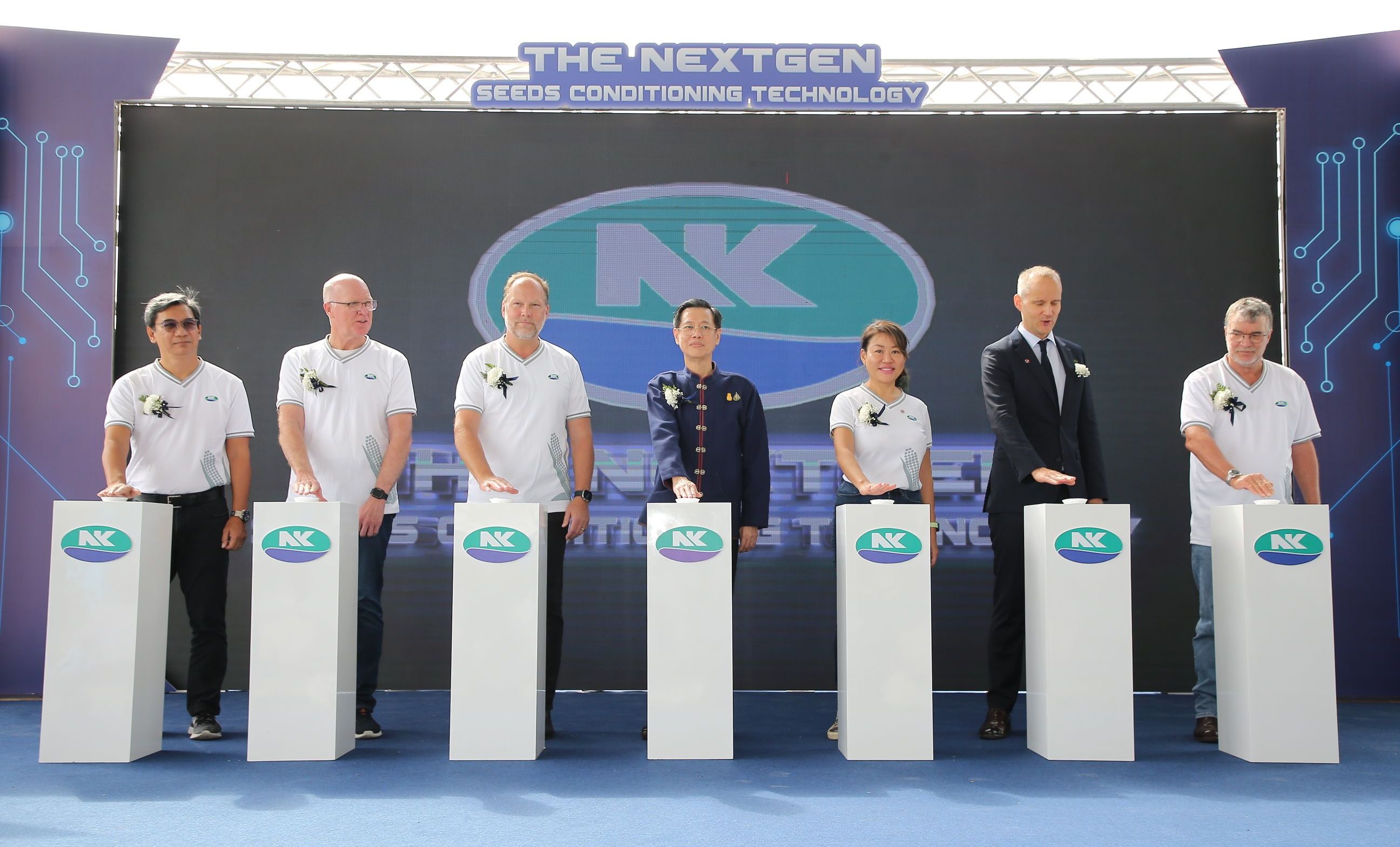
Syngenta Seeds Thailand today inaugurated a new production plant in Lopburi, hosting an official ceremony attended by Justin Wolfe, Syngenta Seeds President, Amphon Ungkapakornkul, the governor of Lopburi province and chiefs of related governmental agencies, as well as business partners.
With this new facility, Syngenta will produce hybrid corn seeds under the NK trademark for domestic use, and for export to Vietnam, Cambodia, Myanmar, Pakistan, Sri Lanka, Ecuador, and Guatemala.
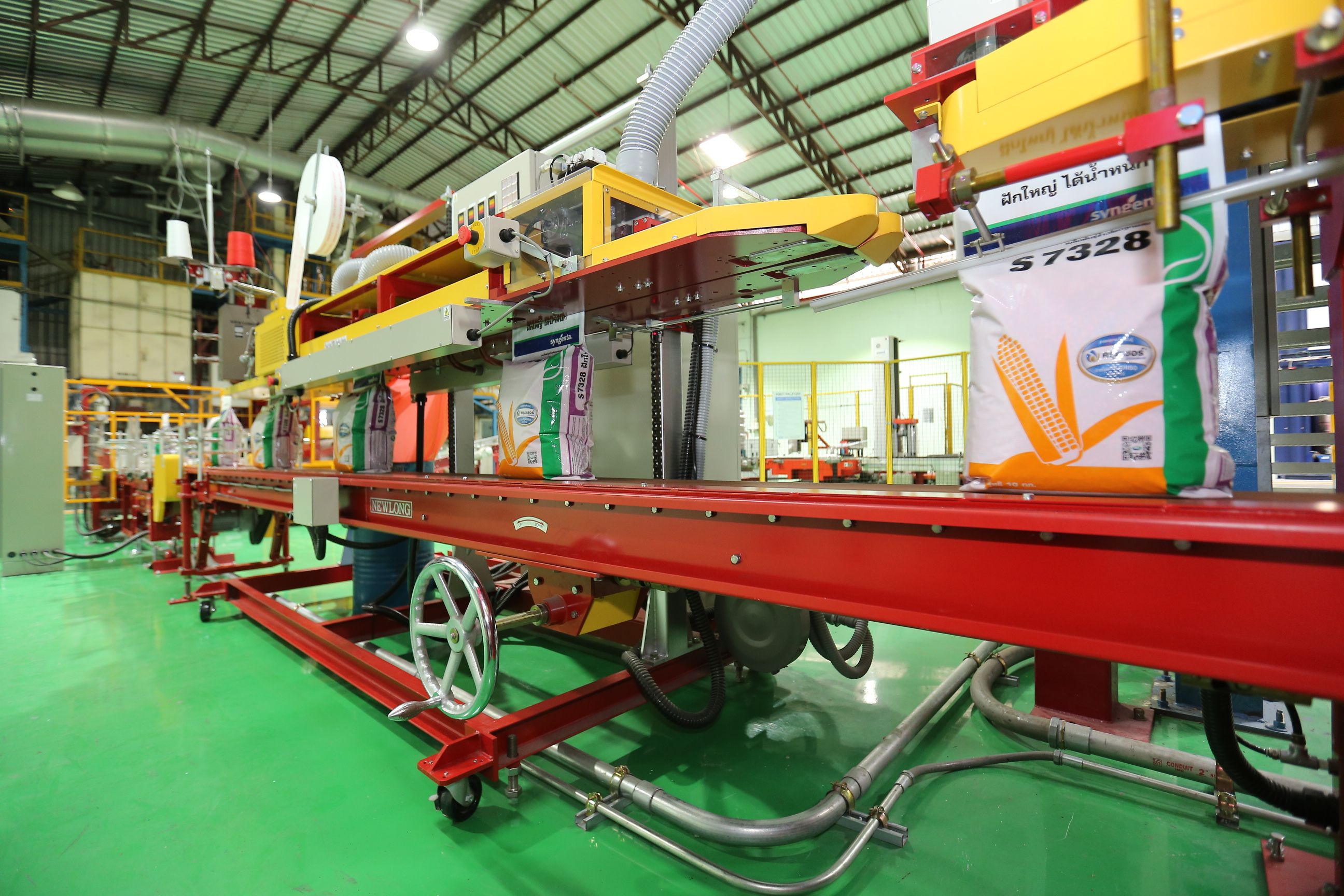
The facility has automatic control systems technology, such as a robotic palletizer that automates stacking of the bags onto pallets, allows wireless monitoring of the process, and reduces human labor. Furthermore, each machine has air cushion technology with a dust abrasion system that prevents pollution during the work process, making the factory more environmentally safe.
It also has the capacity to inspect corn seed DNA extraction, ensuring high-quality corn seed production. This is done to verify if the seed appearance fits with the modified process. Corn seeds are also randomly checked for sprouting rate and quality. The sprouting rate for Syngenta’s seeds is at least 95% (the law requires that the rate exceed 76%), whereas grain moisture is lower than 12%.
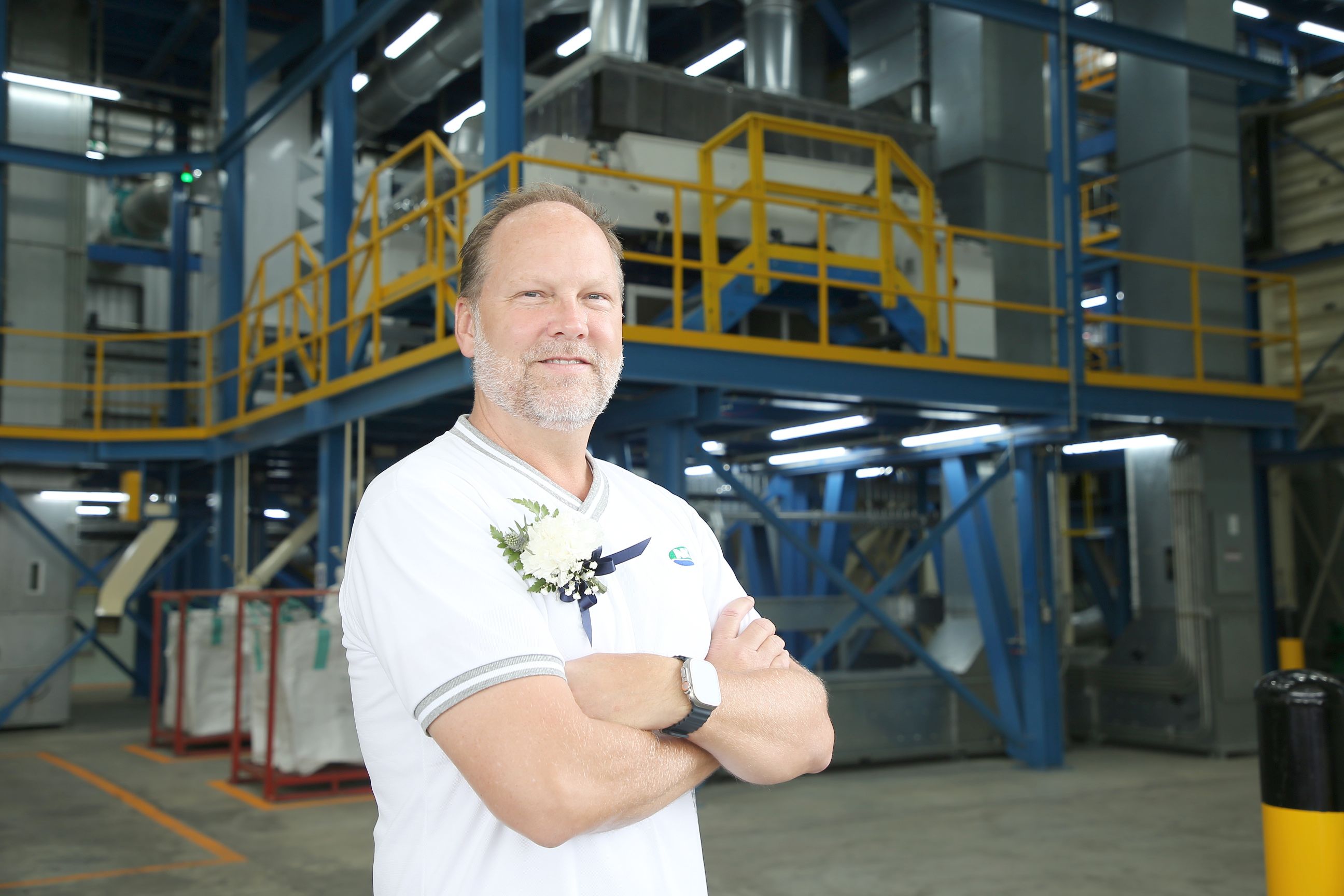
Mr. Justin Wolfe president of Syngenta Seeds said “We have been able to apply our international know-how, experience and expertise, combined with the ingenuity of our local Thai team to transform agriculture in Thailand. As a result of this hard work, farmers have rewarded us by buying a lot more of our products and our market share in Thailand has grown significantly. A sincere thank you to all of the farmers, dealers and partners for choosing to do business with us. We sincerely appreciate your support and we do not take that for your business for granted, but rather we intend to focus even harder to help Thai farmers and our partners be more successful in the future. We continue to invest millions in research and development annually to bring new products and technologies to the market which is key for Thailand’s food security as well as to help create a more sustainable food production system.”
“I am proud to announce that Syngenta has invested over 330 million baht in this state-of-the-art facility implementing the latest cutting-edge technology from Germany and Japan. We produce high quality hybrid maize seeds for farmers with the most modern techniques such as mechanical arms for shelf stacking, continuous remote inspection and dust cleaning systems to reduce air pollution. The plant is fully compliant with advanced environmental and safety standards. It is truly a smart factory for the 21st century.”
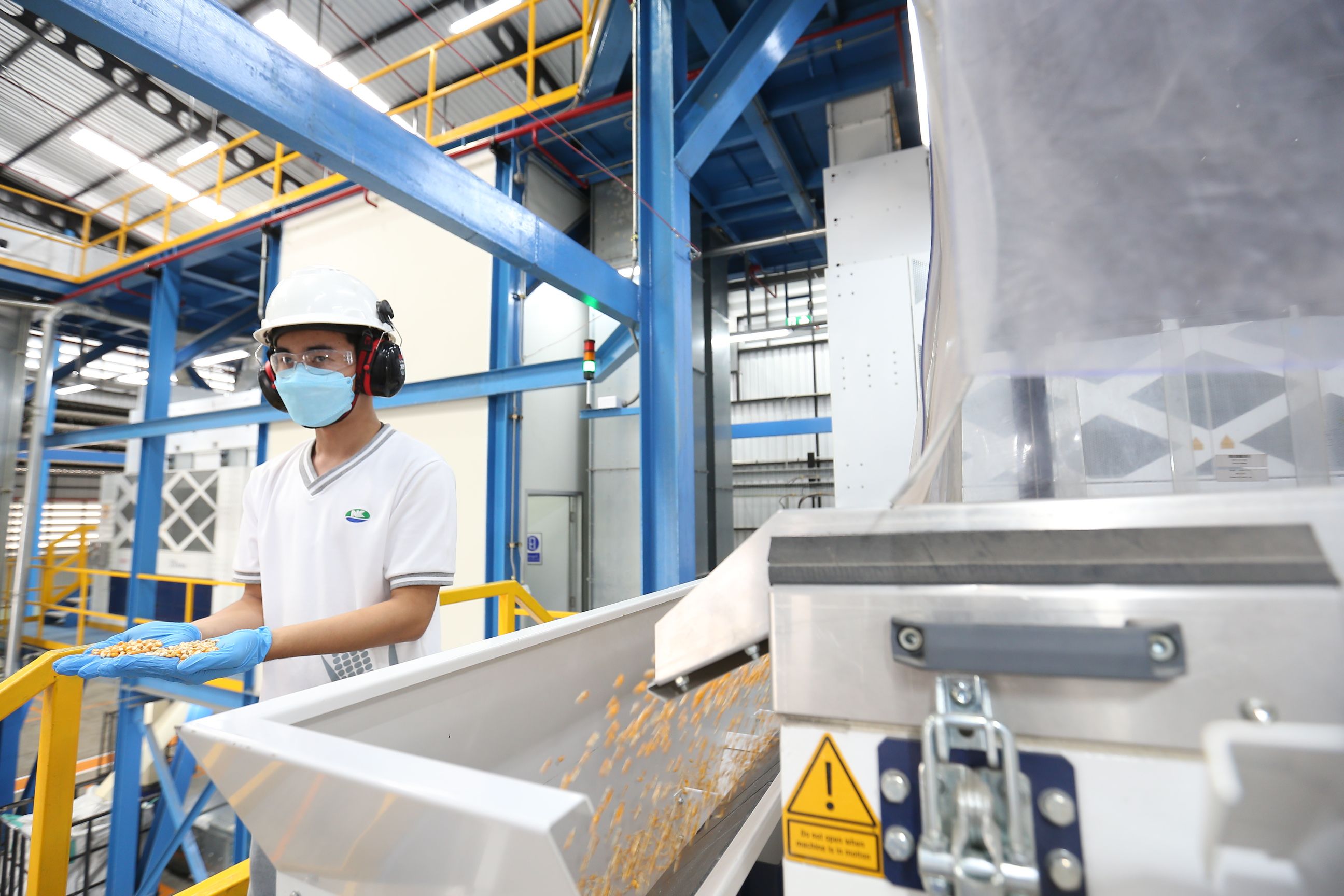
“This new plant accelerates our processes to deliver capacity increases from 3 tons in the past to 10 tons now per hour. Not only is this increasing capacity, but it is also increasing quality as well. This gives more and better quality product available to farmers to help them increase crop yields and create more income for their families.”
Moreover, the company applies technology to the grain-sorting process to maintain physical purity and standard size. With these innovations, the quality of corn seeds – as proven by the germination rate, seed vigor, physical purity, and homogeneity – is expected to improve and become more resistant to drought, various diseases, and insect pests. This helps farmers achieve higher yields, meet market demands, and earn more income.
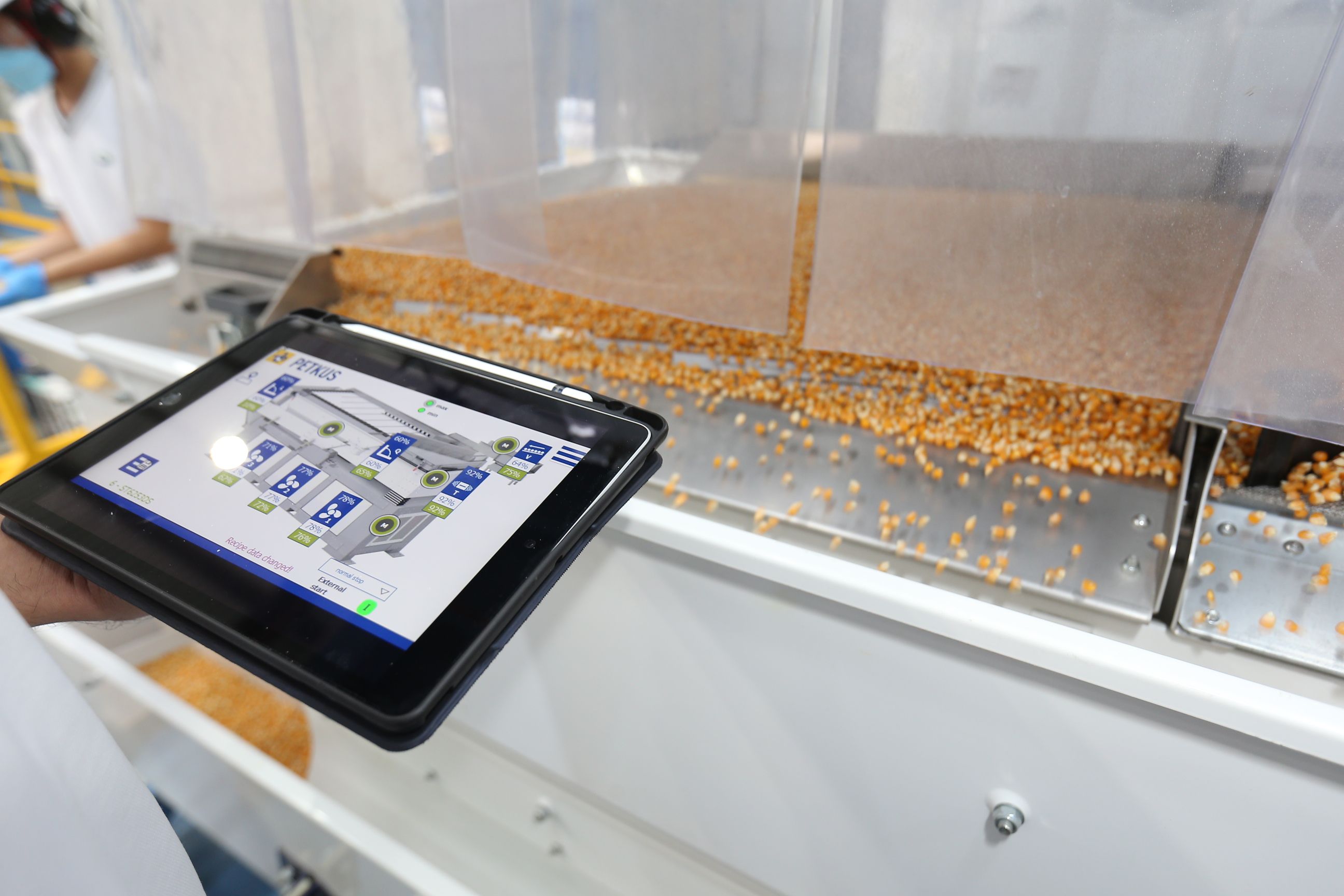
Thailand’s demand for maize ranges between 8-9 million tons per year, but the country’s current production capacity is only 5-6 million tons per year, leaving a 2-3 million ton shortfall. Factors contributing to this shortfall include the lack of quality corn seeds, pest resistance, and fast-changing growing environments. With the new facility’s innovations, we expect Thailand’s shortfall to be reduced.
As one of Thailand’s biggest producers and distributors of corn seeds for livestock feed, Syngenta has been working on corn seed innovation since 1993 and recognizes the significance of implementing technology for improvement.
03 December 2022
Viewed 359 time
 EN
EN 

